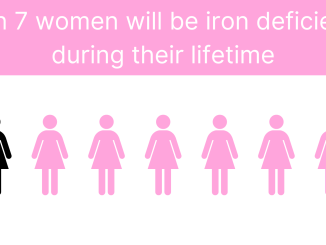
The Australian vegetarian population has been increasing in recent years for various reasons including religious beliefs, health benefits and animal ethics. However, there is always a debate on whether vegetarianism is a healthier diet.
Background
According to Harvard Health, vegetarian diets can reduce the risk of heart disease and some cancers. However, vegetarian diets can be insufficient in important nutrients such as protein, vitamin B12, iron, zinc and omega-3 fatty acid which can lead to health risks. In addition, vegetarians may lack vitamin D and vitamin K, which can cause potential bone health issues.
There are many types of vegetarian diets including:
- Lacto vegetarian: diets exclude meat and egg, but include dairy products.
- Ovo-vegetarian: diets exclude meat, but include eggs.
- Ovo-lacto vegetarian: diets exclude meat, and dairy, but include eggs.
- Vegan: diets exclude all animal products.
Vegetarians can adhere to these diets based on their moral obligations, beliefs and health status. Alternatively, individuals can choose semi-vegetarianism, which allows the consumption of seafood or poultry, but not other animals.
Story Angle
This story will focus on both the perspectives of the vegetarian community and the scientific findings from nutrition experts to present a balanced and fair view. Specifically, it will delve into the debate on whether vegetarian diets are truly healthy. Moreover, this article will provide recommendations for a healthy diet with evidence.
News Values
This story is timely because the Australian vegetarian population has been growing in recent years and there is an increase in vegetarian consumers in Australia. This story is also newsworthy as it presents a conflict in the debate about vegetarian diets. Audiences are interested in understanding the facts and impact of becoming a vegetarian.
Publication and Target Audience
This story will be presented in the form of a news commentary in the health section of The Guardian. The Guardian is a chosen publication due to its target audience, which falls within the age range of 25 to 54 years old. This aligns with the majority of Australian vegetarians’ age groups. Among the 2.5 million Australian vegetarians aged between 25 and 65 years are more concerned about animal rights and the environment.
Online Delivery
Similar to the articles published by The Guardian, this story will include images, hyperlinks to sources and interview audio to attract the readers and enhance their reading experience.
Source of Information
Potential Interviewees
- Dr Stephen Simpson, a professor at the School of Life and Environmental Sciences at the University of Sydney. (+61 293512688)
- Member of Vegan Australia (+61 400492157)
- Staff in Tian Ci Vegan restaurant (+61 280052932)
Secondary Sources
- Harvard Health article on vegetarian
- Academic paper
- Iguacel, I., Huybrechts, I., Moreno, L. A., & Michels, N. (2021). Vegetarianism and veganism compared with mental health and cognitive outcomes: a systematic review and meta-analysis. Nutrition reviews, 79(4), 361-381.
- Mariotti, F., & Gardner, C. D. (2019). Dietary protein and amino acids in vegetarian diets—A review. Nutrients, 11(11), 2661.




The story angle and news value was also appropriate and relevant, especially in the context of Australia’s growing vegetarian population. The target audience is clear and the delivery method through The Guardian Project is appropriate. Respondents who are vegetarians with obesity or diabetes may be more able to provide you with more ideas to explore, as well as research data to demonstrate whether a vegetarian diet affects health For example, there is some evidence that low intakes of certain nutrients (such as vitamin B12, not mentioned in the background) may increase the risk of certain health problems over time, etc.